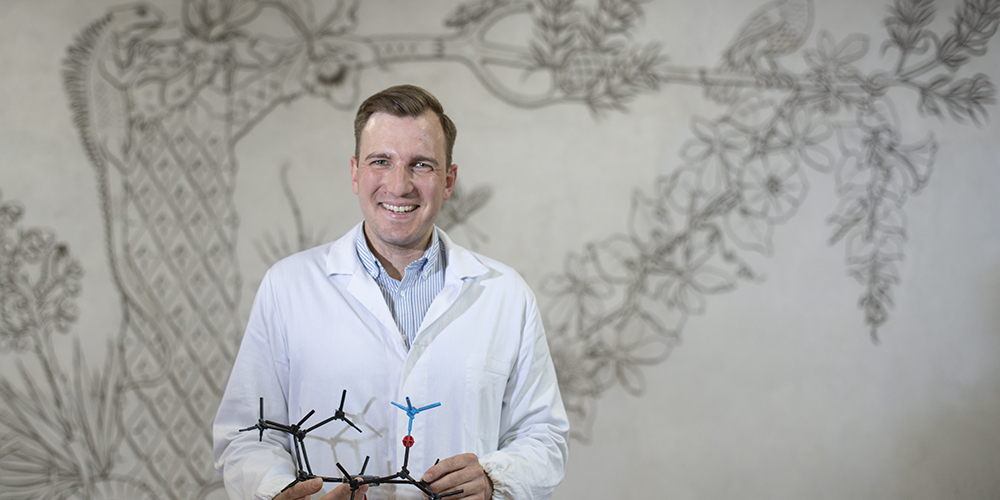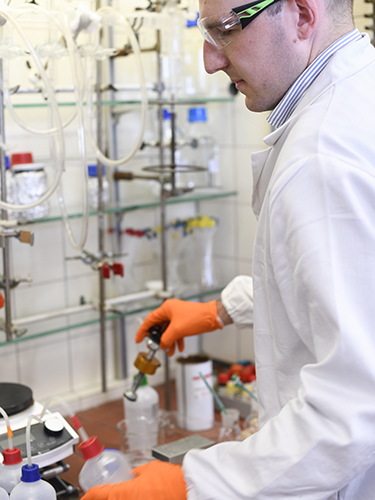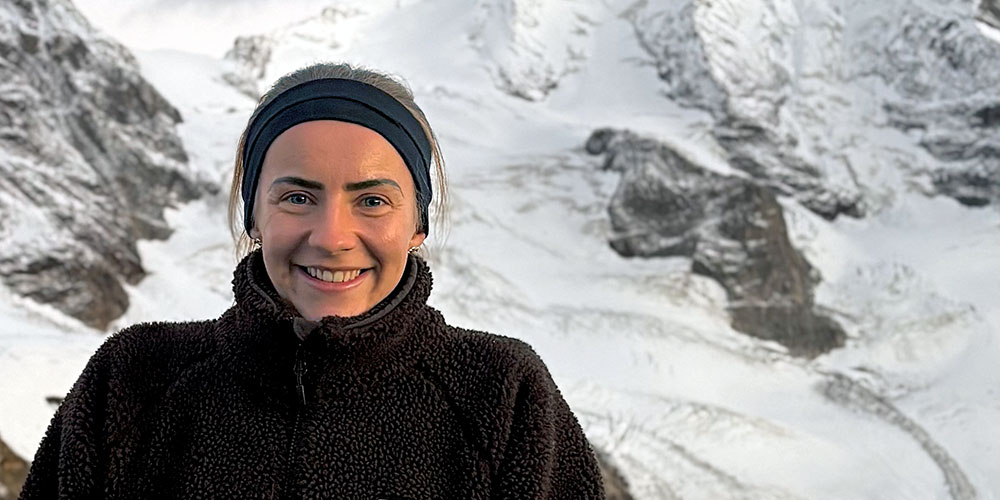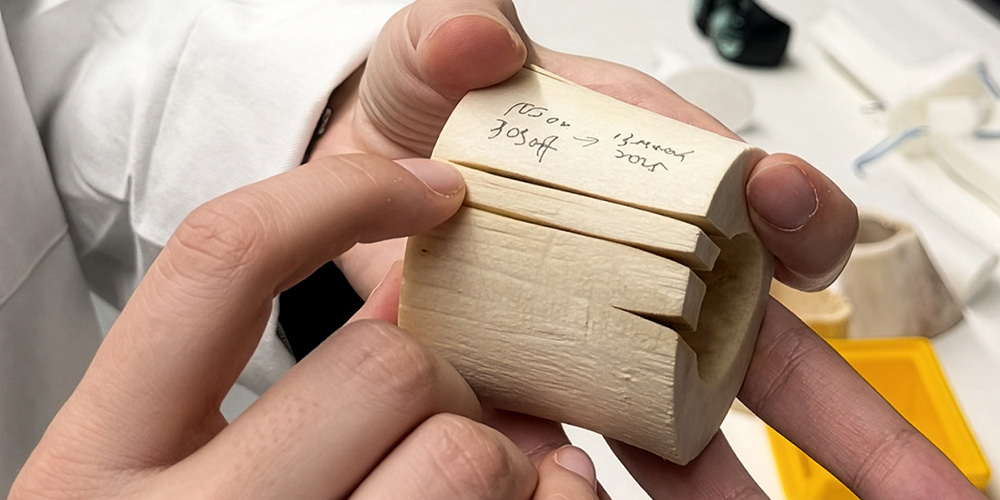In Focus: Silas Battisti is searching for the right chemistry
Once he wanted to make wine, but today he tinkers with the synthesis of natural substances – and the perfect pizza dough. Doctoral student Silas Battisti has a feel for perfect interaction. In every respect.
12 August 2025 | Angelika Jacobs
If you grow up in wine-growing country like Germany’s South Baden region, there’s an obvious career path available: after graduating from high school, Silas Battisti opted for dual studies in viticulture and oenology, which teaches the theory and practice of winemaking.
“My studies were highly varied,” he recalls on a sunny day in June over a poke bowl. He is currently supervising a two-week internship for pharmacy students, so he is using his lunch break to talk about his career. “We had biology lectures that taught us, for example, how grapevines grow and what effect the different wine yeasts have on fermentation, but our studies also included business administration and modules on chemical processes in wine production.”
It was this last topic that proved particularly fascinating, reports the tall 30-year-old. His studies also included laboratory placements. “That’s when I realized that organic chemistry was the thing for me. That is, the chemistry of molecules, which largely consist of carbon and hydrogen and play a key role in living organisms.”
From wine to natural substances
He decided to switch to studying chemistry in Freiburg im Breisgau and has never regretted the decision. His fascination with complex molecules ultimately led him to Basel. During an internship at the science and technology company Merck he developed a fascination with a certain type of chemical reaction known as C-H activation. He also received a tip about the research group led by Olivier Baudoin, a professor in the Department of Chemistry. Baudoin and his colleagues are developing new synthesis methods in the field of C-H activation, which could improve efficiency in the production of natural substances and other organic molecules for medicine and agriculture.
“In the end, I had several options for my doctorate, but the topic and the research group here impressed me the most,” says Battisti. He says the environment at the institute is highly international and the equipment is “top” – even though the building is getting on a bit. “The atmosphere in the research group and at the institute is very collegial. We help each other.” Another thing he values highly.
As with every doctoral dissertation, he has had periods of frustration over the past three years, when it took plenty of perseverance for experiments to succeed. The complete synthesis of complex molecules from nature can be tricky. You have to get exactly the right components of the starting and intermediate molecules to react precisely with each other.
Battisti’s aim is to establish the complete synthesis of a substance from a fungus. To date there has never been a production process in the laboratory for this group of compounds. “If we succeed in tapping into this class of substances using our synthesis method, it will send a strong signal that C-H activation can also be applied to molecules of industrial interest,” says the chemist. This practical relevance was important to him in his choice of dissertation topic. “I like doing chemistry, and I like it when it relates to things from real life.”
The chemistry of pizza baking
Nevertheless, the South Baden native has remained true to his roots, retaining an interest in culinary delights and good wine. While he optimizes the synthesis of natural substances in the laboratory, the enthusiastic amateur chef also improves recipes at home in his kitchen. He draws inspiration from social media, among other things.
But he then puts ideas into action with the analytical gaze and meticulous documentation of a scientist. “I have notebooks in which I record which changes to the recipe lead to which results.” His background knowledge in chemistry helps him decide which parameters are worth tweaking.
For example, he says he has been in the “pizza game” for some time now. How do differing amounts of water change the dough, and what amount is the “sweet spot”? How long should you knead the dough and what type of flour gives you the smoothest dough and the best crunch once it’s baked? Last year he traveled to Naples with his wife to visit the most famous pizzerias and gather inspiration. He now owns his own pizza oven.
Just like in research, experiments in the kitchen sometimes require several attempts. Before Christmas, he tried making panettone, hoping to give the Italian specialty as a gift to his circle of friends. “After four trials, I had a result that was worthy as a gift,” says Battisti with a smile.
Harmony
Away from chemical reactions in the glass flask or the pizza dough, Battisti also finds balance in music: he plays horn in an orchestra for which he volunteers. He also makes music at home with his wife, who plays the clarinet.
The harmonizing of instruments, the interplay of ingredients and molecules – it seems the key to all of Silas Battisti’s passions is getting the chemistry right.
In Focus: the University of Basel summer series
The In Focus series showcases young researchers who play an important role in advancing the university’s international reputation. Over the course of several weeks, we will profile academics from various fields – a small representative sample of the more than 3,000 doctoral students and postdoctoral researchers at the University of Basel.





